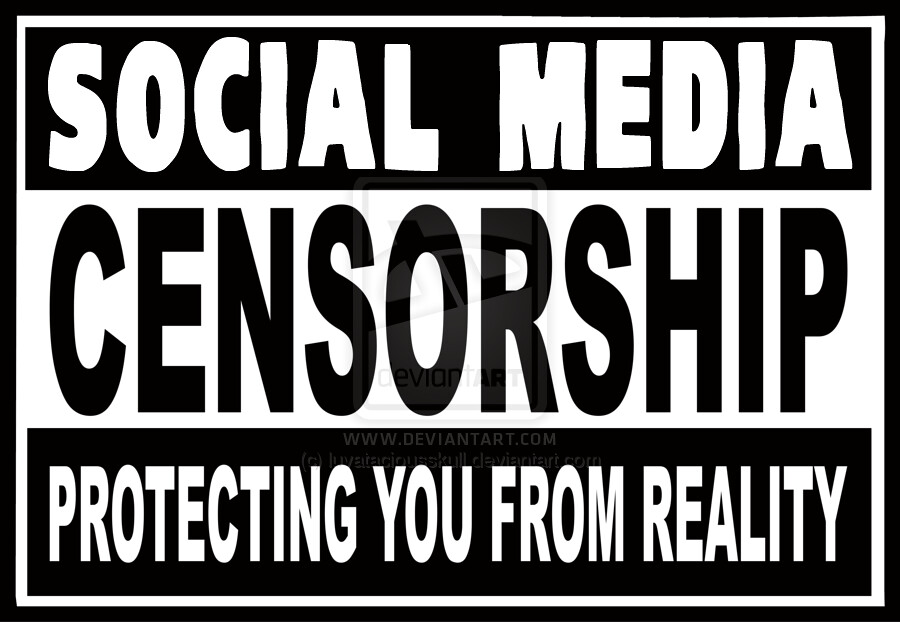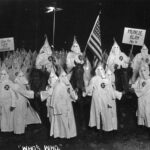As discussed in a previous article, attempts to limit free speech in America based on the prevailing leftist ideology of inclusion have so far failed in the courts, but it is an ideology that remains on the offensive both in America and Europe. Younger Americans are being trained to believe that limiting speech is proper, so that an ongoing struggle can be expected in the future.
What leftists term “hate speech” has now been prohibited in Europe by law. It is also censored on American social media controlled by tech companies owned and operated by people who agree with the Left in the areas it wants to censor.
European censorship was discussed by Paul Coleman of the Alliance Defending Freedom, and American high tech censorship by Klon Kitchen of the Heritage Foundation in a panel discussion at Heritage on June 21.
“Europe is in a very difficult place in regard to free speech,” Coleman said. “Europe has hundreds of criminal restrictions on speech across the continent in every country.”
Hate speech laws, Coleman said, developed mostly after World War II, and have been expanding “ever since.” Organizations such as the United Nations, the European Court of Human Rights, and other international organizations whose mission is to defend freedom “are actively pushing for the criminalization of speech, and for more hate speech laws.” Many Americans who favor hate speech laws and regulations “often point to Europe … as a potential model” for what they would like to see in America. Coleman then outlined three aspects of European hate speech laws and their effects.
The first thing to notice about European hate speech laws is that they “are incredibly vaguely defined.” Some believe this is intentional. Courts and human rights commissions, where these exist, can then interpret them according to current leftist ideology, while the laws themselves only speak of ideals that many people might consider to be simply civility. He noted that Austrian law prescribes six months in prison for publicly “disparaging” a “dogma.” There need not be an actual human victim.
Second, hate speech laws are given “selective enforcement.” He said that “it is impossible to police the speech of an entire continent … so much speech is offensive to someone.” But what seems to be singled out for legal action are social conservative positions: “the sanctity of life, marriage, the family, sexuality, [and] in Europe particularly, issues like immigration and radical Islam … Bishops, cardinals, and other ministers of religion” have been “investigated by the police for hate speech.” There have been “journalists fined and imprisoned, and we’ve even seen private conversations between citizens become the subject of criminal complaint.”
Third, most cases involving these laws have “no actual victim.” Coleman pointed to the case of an anonymous woman in Austria convicted of hate speech for referring in a lecture to the age difference (48 years) between Mohammed and his favorite wife, Aisha, and her age at marriage (6 years old). He said she was convicted because the state held that “hypothetical people might be offended” at her comments. This shows, it might be added, that hate speech laws are in fact simply tools used by activists to craft the public mind they favor.
As to the effects of hate speech law, Coleman said first that hate speech laws tend to produce “more censorship.” He quoted George Orwell as saying “once the shrinking dictionary begins, there is no logical stopping point.” While speech restrictions in Europe originally prohibited only very “extreme forms” of speech, it now includes the wide range of topics listed above, which are really of broad concern across the political spectrum. There is, however, only one correct view on these currently contentious topics which can be freely expressed.
Secondly, censorship leads to self-censorship. There is a “you can’t say that” culture. He noted that “many hate speech cases don’t actually result in a criminal conviction.” The “stigma” of being involved in a hate speech case is in itself a kind of penalty, resulting in self-censorship and a public square tailored to what social liberals want. Anti-immigration politicians are labelled “racist.” Similarly, a preacher who speaks “on the Biblical definition of marriage” is stigmatized. This situation, Coleman said, “is one of the major goals of hate speech laws, to change attitudes and behaviors.” Hate speech law is aimed at thought, Coleman said, as well as speech.
Thirdly, hate speech laws in fact result in “more division, and more polarization.” Against claims that hate speech laws prevent conflict and violence, Coleman said that “there is more tension and division in Europe today than at any other point since the Cold War.” He claimed that some of the worst societal tensions in Europe are in jurisdictions that have the “strictest” hate speech laws. He suggested France, Germany, Sweden, and the Netherlands as examples. He said that “genuine hate speech is driven underground, where it cannot be countered with better speech.” A “victimhood mentality” is engendered, which uses these laws as “weapons to shut down debate.” Non-profits and “semigovernmental” entities are “set up to counter this alleged rise in hatred.” These organizations are “constantly driving a narrative that hate is on the rise, and therefore they need more funding to counter it. And so an entire hate industry has been created that needs a narrative of hatred for its own revenue stream.”
Coleman said “the U.S. has obviously not followed the same legal path as Europe, but in many ways it appears to be adopting the same mentality.” The policies of big tech and on college campuses are the same type of restrictions as hate speech laws in Europe, even if they do not have the same legal force. “If America does not heed the warnings of Europe, then I think it will surely be destined to follow.”
Klon Kitchen discussed how hate speech doctrine “is being operationalized within the technology sector.” Tech companies have “an ideological commitment to the philosophy … laid out” by the contemporary left concerning offensive speech. Also, the ideal of “a hyper-realized individual autonomy, a self-derived identity” is strongly held in the technology industry. Social media and other technology industries are endeavoring to “virtualize the real world.” This goes along with a “business model” of “in-depth, reliable data.” He said that “safety is the pre-requisite for authenticity … Users will not be themselves if they do not feel safe.” The concern for security, he said, is first all a concern for physical safety. “Self-harm” videos are not wanted, for instance. But increasingly, Kitchen said, the focus is on psychological safety. Companies draw on researchers who share their world view to suppress speech that will possibly cause “someone to feel that they cannot be their authentic self in the moment.” The present, as this writer has noted in other articles, seems to have priority over the past and future. And “safety” and “authenticity” depend on an ever changeable definition of the self, which cannot be questioned. This, he said, “is a pretty low bar … and not one that sits still.” It is a “fluid standard.” This is coupled with the idea of “word violence,” i.e., that words that threaten one’s identity are an act of violence.
Kitchen said that as the definition of hate speech is constantly being expanded by the Left, tech companies must keep changing their community standards to follow. But although these standards are becoming more acceptable in the wider society, there remains a limit on what they can do in imposing standards to which the entire American public is bound. The pro-life position, for instance, is becoming more unacceptable to leftist users. It can be expected that pro-life expression will be incrementally suppressed, but it will be justified as necessary to make persons favoring abortion or who have had an abortion feel “safe.”
Conservatives are in a difficult position, as tech companies cannot be regulated without establishing government imposed standards of neutrality and fairness. He noted that “conservative users of these platforms have not been sufficiently motivated to vote with their feet.” Kitchen said he personally uses “a search engine that works really, really well.” The tech companies imposing leftist standards also have their own free speech rights, Kitchen said. Another point is that bias is built in to searching. “Search engines serve you up results based on what they think you’re looking for.”
Kitchen pointed out that technology companies will also be important to the future not only in shaping society, “but also in defending that society going forward.” Kitchen asked how do we protect American freedom while ensuring that “we do not hurt an industry that is going to be essential for our long term thriving.”
A questioner asked if “carried to the furthest extreme, a foundation like Heritage would have to be demolished?” Arthur Milkh, who earlier discussed American legal protection for free speech, said “maybe.” Almost any political speech can be “re-defined” as causing marginalization. He noted a New York Times article that said that “discussion of tax policy is a racist dog whistle.” Even discussion of hate speech laws could be considered off the table, “finalized and once and for all.” Coleman said that “the biggest battle is the freedom to even discuss all the other issues.” He said “we have seen a real seismic shift in that battle in such a short period of time.” There is now an “increased hysteria in public discourse.” He also noted that the European Court of Human Rights decision upholding the conviction of the Austrian woman for criticizing Mohammed referred to “permissible limits” of criticizing religious doctrine, and effectively claimed to be able to determine what is a neutral viewpoint (with other viewpoints, apparently, to be effectively prohibited).
Milkh added that “any law informs human psychology and behavior, that’s its purpose.” He said emerging legal standards would judge cases by “anger, so whoever is aggrieved, the angriest should have justice on their side.” This then encourages fanaticism, especially by those who feel deeply aggrieved. Anger, he observed, “need not have justice in it.” By contrast, he noted that Thomas Jefferson said that “freedom of speech puts rational questions to fanatical belief.”
Another questioner asked why the political left tolerates (or even encourages) criticism of Christianity, but does not tolerate criticism of Islam. Coleman said that the threats to free speech were not wholly from the left. There is enormous selective enforcement of hate speech laws, he said. He said that there is “an absolutely undeniable bias against Christianity in the application and the enforcement of the laws.” Another questioner asked what could be done about colleges and universities that have advertised themselves as open minded and yet insist on a rigid line of correct politics. Milkh said that one should not “so easily believe their claims.” He said that the conservative strategy on liberal/left campuses has not worked (e.g., seminars, independent study centers, etc.). What might work is looking at state support for such institutions (student loans, government R&D money, etc.) Currently this support only results in education hostile to American society. It produces students “hostile to the nation, and often against the freedom of speech.” Thus, it is really a form of fraud. He believes that “student loans should be privatized, period.” He maintained that if it is, “eighty percent of America’s universities will shut down. And I think we’re at the stage now where that’s not such a bad thing, in fact I think it may be a net benefit to the United States.” He said the number of colleges has doubled in the past 50 years, and the dropout rate for four year degrees is about 60%. Many colleges’ existence, he believes, are “artificially propped up.”
Another questioner asserted that the panel, and all others at Heritage and in Washington, D.C., “is indoctrination.” He also claimed that there is “no chance to respond” to claims such as that made about Mohammed’s marriage to a six year old girl, and that therefore the decision of the European Court of Human Rights was “absolutely justified.” Coleman responded that the decision of the court was completely unjustified. The lines that the court attempted to draw were “completely arbitrary and subjective.” He said freedom of speech gives us the best chance to redress grievances. Kitchen said that the questioner’s ability to ask the question he wanted “is precisely what is under threat.”
Traditional Christians with any sense of the past may find it strange that the Left now attacks truth and reality. It was in the name of truth and reality that Christian doctrine has been attacked by rationalists over the last several centuries. Especially among Evangelicals, there is a strong apologetic literature to make the claim that Christianity is both rational and realistic. But the new sympathy of the Left to various dogmas should not surprise us. What is wanted is what Evangelicals have called “assurance of salvation,” the knowledge that one has right standing before God. In the debate over freedom of thought and expression, we should not accept that people are entitled to feel secure. We should be open to criticism of what we may cherish. But for Christians, our security is in a transcendent God who has given us faith to believe in him. For many of today’s leftists, their bedrock security can only be in their personal preferences. This does not seem to be enough. They require the legal fiction of a final security which the state and society cannot provide.





Comment by Mary on September 1, 2019 at 5:36 pm
THANK YOU! There are days that I am so surrounded by this insanity, I start to wonder if it’s just me. Losing the right to freedom of speech is an almost terrifying concept. It is happening all around us, but it is biased to heck! Either everyone is entitled to free speech or really, nobody is. As a Christian, I am constantly being accused of hating people who don’t share my beliefs. I am constantly accused of being a bigot because I object to being the target of BIGOTS! We live in a world in which those who are the most offended, and who can scream the loudest write the story. It is simply ” might makes right,” with a different, and much more insidious face.